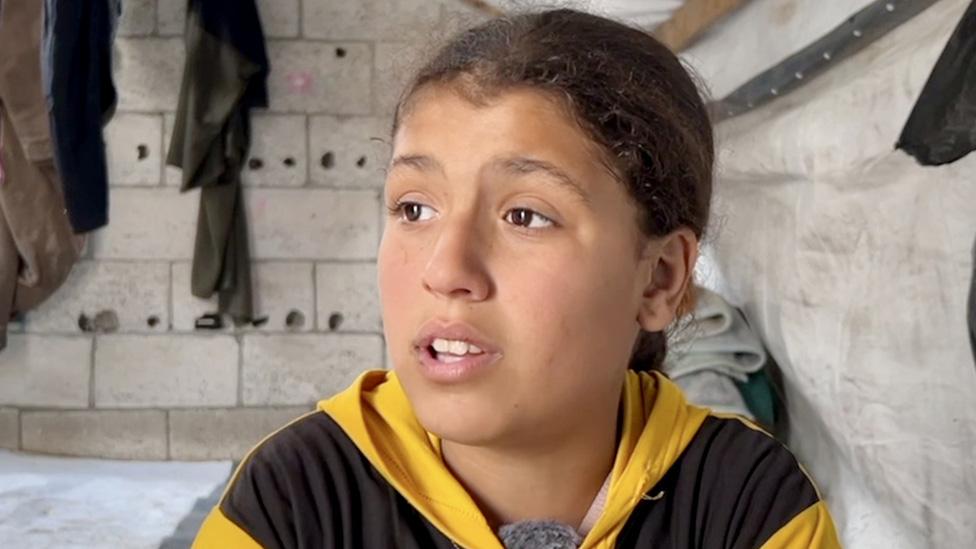Israel-Gaza war: UN Secretary General Antonio Guterres in new ceasefire call
- Published
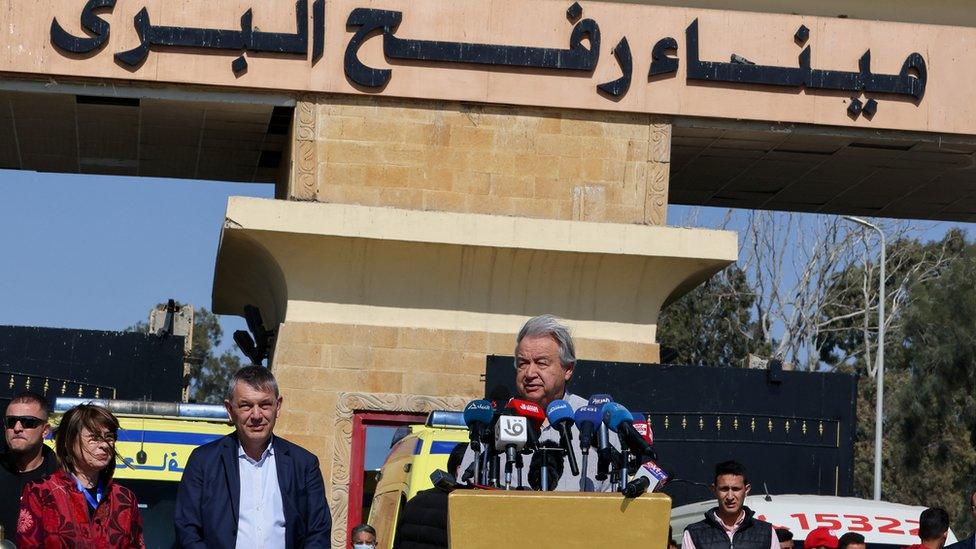
UN Secretary General Antonio Guterres has made a renewed call for an immediate ceasefire in Gaza.
"It is time to silence the guns," he said, speaking from the Egyptian side of the Rafah crossing with the enclave.
He also called on Israel to give "total, unfettered" access to humanitarian goods throughout Gaza.
A UN-backed food security assessment this week said 1.1 million people in Gaza were struggling with catastrophic hunger and starvation.
It added that a man-made famine in the north was imminent between now and May.
Watch: Ceasefire needed for effective aid distribution in Gaza, says UN chief
Mr Guterres, who said he had come to Rafah "to spotlight the pain of Palestinians in Gaza", was speaking a day after Russia and China blocked a US draft resolution put to the UN which called for a ceasefire tied to the release of hostages held in Gaza.
"It's time to truly flood Gaza with life-saving aid. The choice is clear: either surge or starvation. Blocked relief trucks on the Egyptian side of border are a moral outrage," said Mr Guterres, who also called for the release of Israeli hostages.
"I want Palestinians in Gaza to know: You are not alone. People around the world are outraged by the horrors we are all witnessing in real time. Palestinians in Gaza remain stuck in a non-stop nightmare," he added.
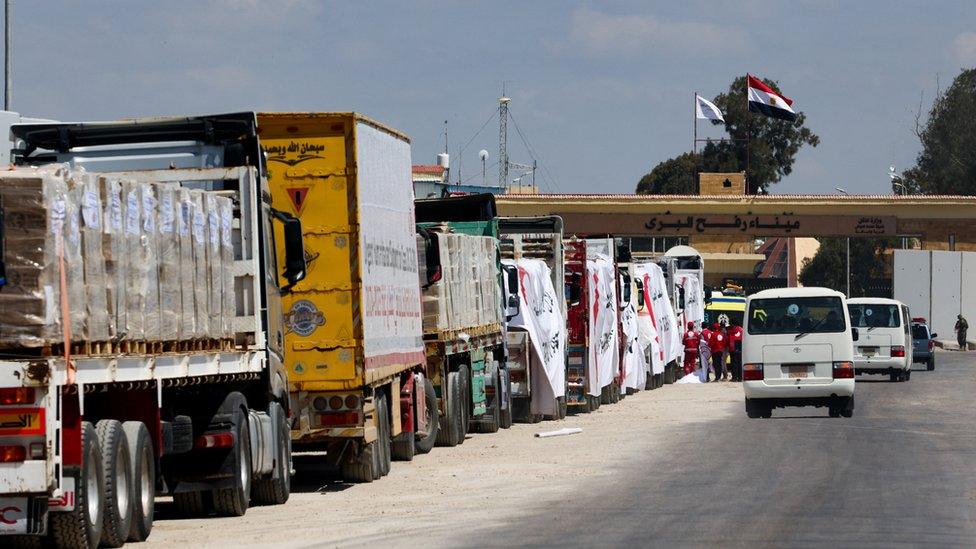
Aid trucks are backed up at the Rafah border crossing
Speaking to BBC Middle East correspondent Hugo Bachega, Mr Guterres again urged Israel to lift the obstacles to the delivery of aid.
"It's obvious that these obstacles are part of the way this war is being conducted in relation to Gaza," he added.
Israel's Foreign Minister Israel Katz hit back at Guterres on X (formerly Twitter), saying the UN chief "blamed Israel for the humanitarian situation in Gaza" without condemning Hamas fighters who "plunder" aid.
The Rafah crossing is one of the main points of entry for aid into Gaza, where long queues of trucks with aid are waiting for Israeli approval to cross.
Western countries and aid groups have criticised Israel over its inspection process, blamed for slowing down the entry of much-needed help.
The war in Gaza began when Hamas gunmen attacked southern Israel on 7 October, killing about 1,200 people and seizing 253 hostages, according to Israeli officials.
More than 32,000 Palestinians have been killed in Israel's retaliatory air strikes and its continuing ground offensive, the Hamas-run health ministry says.
Earlier, Mr Guterres met UN humanitarian aid workers in el-Arish, the Egyptian city closest to Gaza, where much of the international relief for the enclave is delivered and stockpiled. He later visited a hospital where injured Palestinians are being treated.
His trip comes as Israel plans to launch a ground operation in Rafah. More than half of Gaza's 2.3 million Palestinians are sheltering in the southern city, where Israel says Hamas leaders are hiding and Hamas battalions still operate.
Israel's Prime Minister Benjamin Netanyahu has defied international criticism of the planned offensive, saying "no international pressure will stop Israel" from achieving all of its war aims.
Related topics
- Published22 March 2024
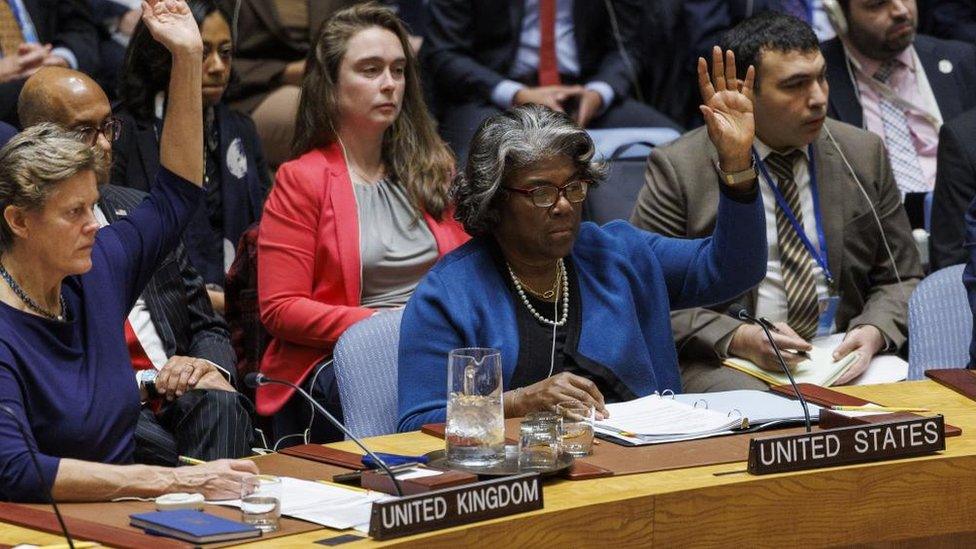
- Published23 March 2024
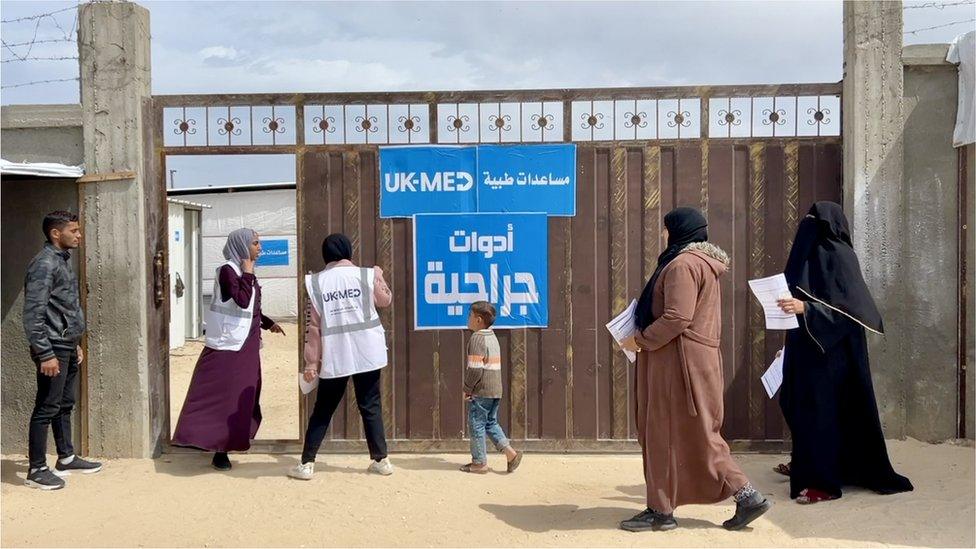
- Published22 March 2024
